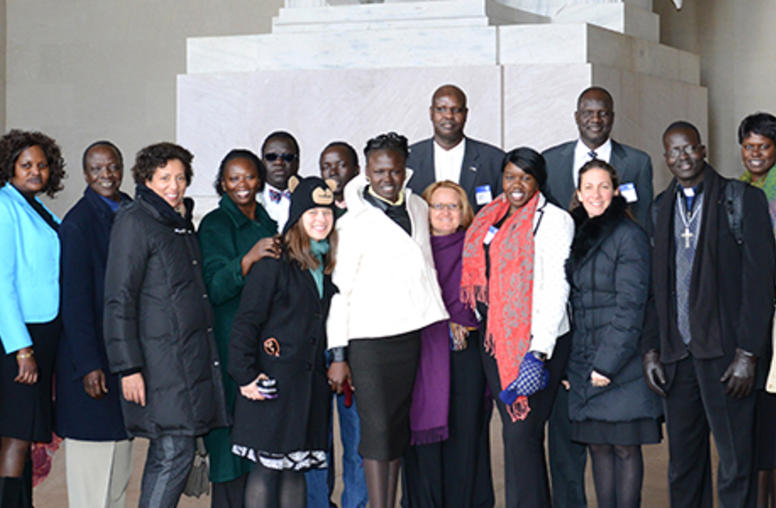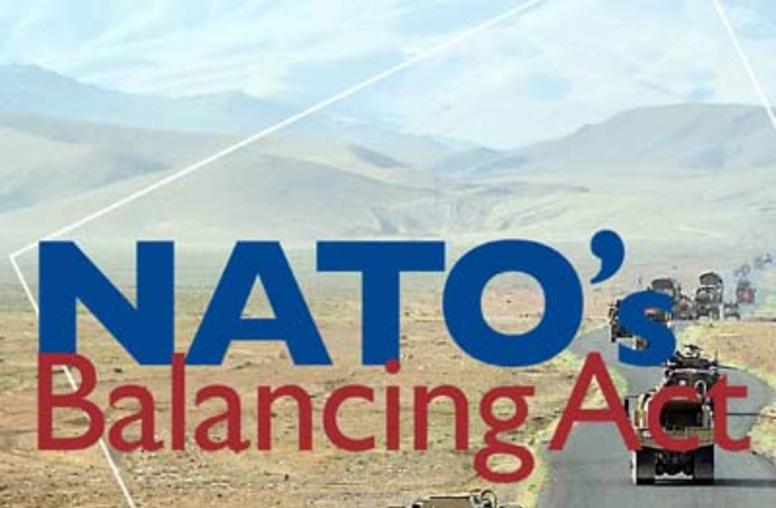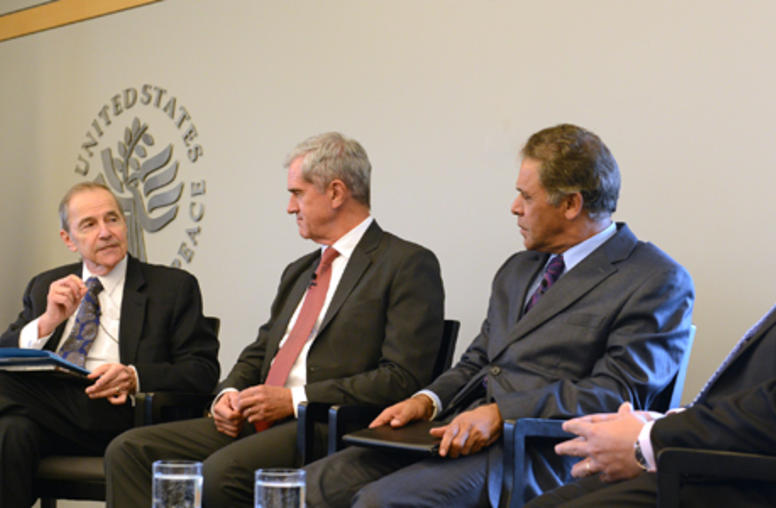USIP and NDU Sign Historic Memorandum
The U.S. Institute of Peace (USIP) and the National Defense University (NDU) signed a historic memorandum of agreement this week that fosters deeper and strong collaboration between two national institutions working on national security and international conflict.
Washington, D.C. – The U.S. Institute of Peace (USIP) and the National Defense University (NDU) signed a historic memorandum of agreement this week that fosters deeper and strong collaboration between two national institutions working on national security and international conflict. Both USIP and NDU conduct critical research and prepare U.S. government personnel and other parties to operate in zones of conflict abroad. Fifty representatives of leadership and staff from both institutions were present at the signing. Vice Admiral Rondeau said at the ceremony, “The signing of this MOU marks the formalization of a long-standing relationship between two institutions that are at the center of education and inquiry in the areas of international conflict, national security affairs and the establishment of the rule of law to foster human security. This accord will greatly enhance the preparation of leaders and practitioners in these fields on behalf of our national security.”
At the ceremony, Ambassador Richard H. Solomon, President of USIP, said, “What is important to understand about this piece of paper is that our staffs have already gone to work on bringing efforts that would have been conducted separately together.” This includes work on critical areas such as genocide prevention, dealing with weapons of mass destruction, understanding the lessons on Provincial Reconstruction Teams serving in Iraq and Afghanistan, and using technology to aid in crisis mapping and response in places such as Haiti.



